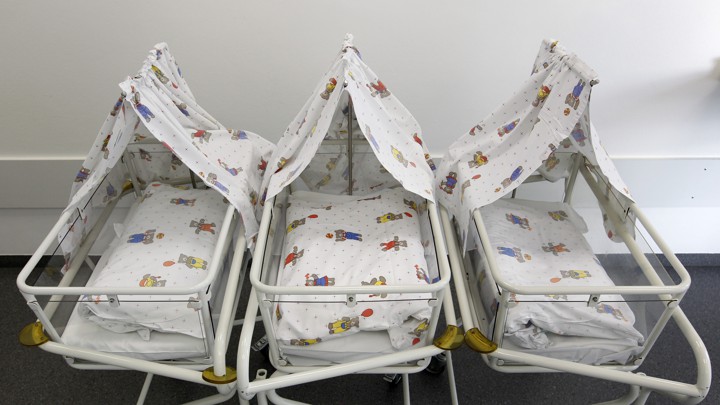Folks, having this blog is a hobby and frankly therapy for me to vent about the world. I don’t always get to everything as quickly as I would like but an article published recently by The Atlantic “The Future of the City Is Childless” really deserves your attention.
Sadly, the article is not about a dystopian future but a current reality. I highly recommend that you read it. The thesis is that big cities are for single, working people with careers and suburbs and rural areas are for families.
New York is the poster child of this urban renaissance. But as the city has attracted more wealth, housing prices have soared alongside the skyscrapers, and young families have found staying put with school-age children more difficult. Since 2011, the number of babies born in New York has declined 9 percent in the five boroughs and 15 percent in Manhattan. (At this rate, Manhattan’s infant population will halve in 30 years.) In that same period, the net number of New York residents leaving the city has more than doubled. There are many reasons New York might be shrinking, but most of them come down to the same unavoidable fact: Raising a family in the city is just too hard. And the same could be said of pretty much every other dense and expensive urban area in the country.
In high-density cities like San Francisco, Seattle, and Washington, D.C., no group is growing faster than rich college-educated whites without children, according to Census analysis by the economist Jed Kolko. By contrast, families with children older than 6 are in outright decline in these places. In the biggest picture, it turns out that America’s urban rebirth is missing a key element: births.
Cities were once a place for families of all classes. The “basic custom” of the American city, wrote the urbanist Sam Bass Warner, was a “commitment to familialism.” Today’s cities, however, are decidedly not for children, or for families who want children. As the sociologists Richard Lloyd and Terry Nichols Clark put it, they are “entertainment machines” for the young, rich, and mostly childless. And this development has crucial implications—not only for the future of American cities, but also for the future of the U.S. economy and American politics.
But if big cities are shedding people, they’re growing in other ways—specifically, in wealth and workism. The richest 25 metro areas now account for more than half of the U.S. economy, according to an Axios analysis of government data. Rich cities particularly specialize in the new tech economy: Just five counties account for about half of the nation’s internet and web-portal jobs. Toiling to build this metropolitan wealth are young college graduates, many of them childless or without school-age children; that is, workers who are sufficiently unattached to family life that they can pour their lives into their careers.
Cities have effectively traded away their children, swapping capital for kids. College graduates descend into cities, inhale fast-casual meals, emit the fumes of overwork, get washed, and bounce to smaller cities or the suburbs by the time their kids are old enough to spell. It’s a coast-to-coast trend: In Washington, D.C., the overall population has grown more than 20 percent this century, but the number of children under the age of 18 has declined. Meanwhile, San Francisco has the lowest share of children of any of the largest 100 cities in the U.S.
Again, please read the rest of the article. I think this explains—in part—some of the divide in our country on many issues. The populated areas that favor singlehood are very self-focused. In a culture that is very present oriented anyway and values that “new is better” (after all that value works well when applied to technology), is it any wonder that, God, family, and children—future oriented values—are distant to them? Feelings and immediate gratification are incongruent to a future orientation.
Given what you’ve read above, is it any wonder that this headline is in the news today?
Alyssa Milano says she has no regrets about 2 abortions: ‘I would not have my career’
Nothing complicates career and immediate gratification more than pregnancy, consequences are so messy. Once you’ve committed to the proposition that life is all about you, it can be jarring to have that attitude challenged.
If the future is childless then how can there be a future?
